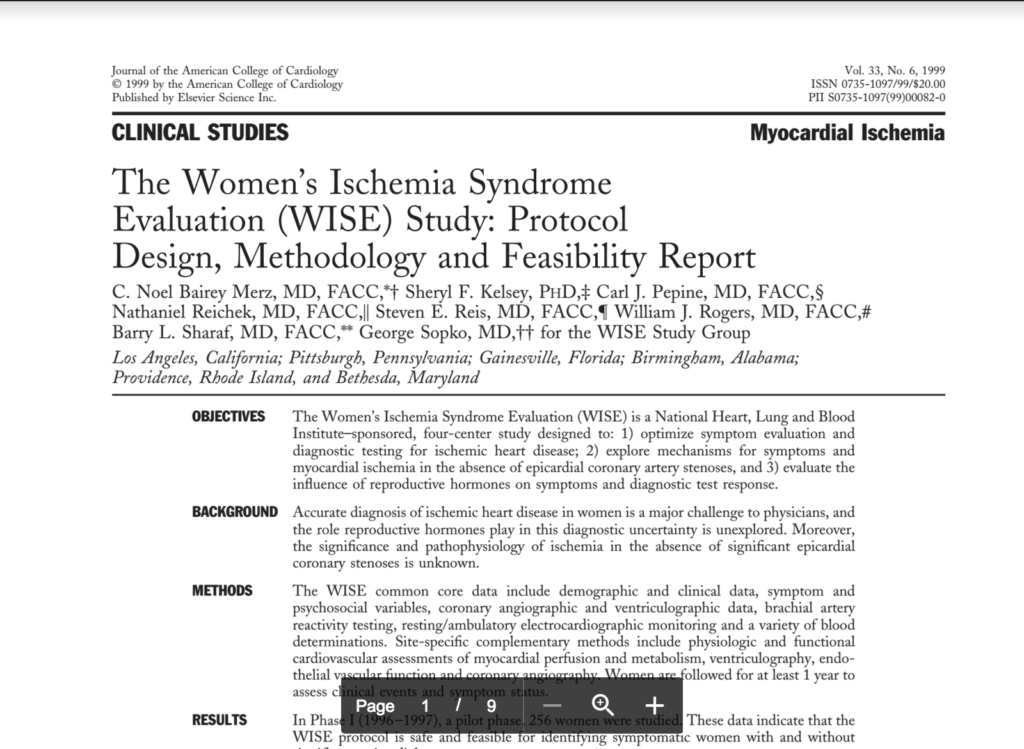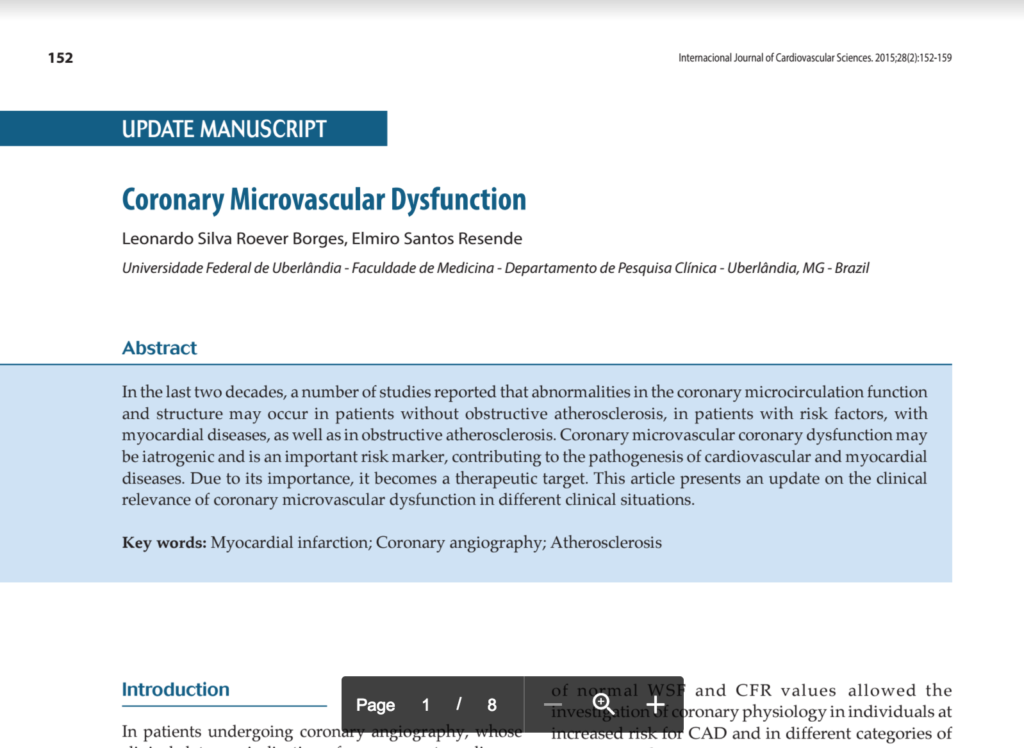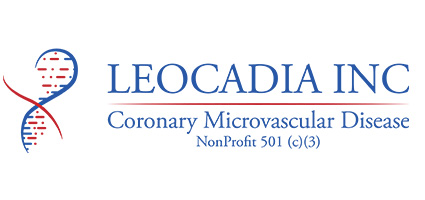THE LATEST
RESEARCH & INSIGHTS
FROM PROVIDERS LEADING THE WAY
Disclaimer: The information contained on this site is provided for informational purposes only and is not meant to substitute for advice from your doctor or healthcare professional. This information should not be used for diagnosing or treating a health problem or disease, or prescribing any medication. Always seek the advice of a qualified healthcare professional regarding any medical condition. Reliance on any information provided by LEOCADIA is solely at your own risk.By making mention of the following articles, we are not endorsing the treatments or any products. Nor does the publication of this material constitute an endorsement of our organization by any institution in this website.
The reason the articles are here is for the purpose to educate the public about Coronary Microvascular Disease. As a public service, we are providing some source material.
INFORMATION FOR PROVIDERS
2017 American Heart Association, Inc. – White Paper

Ischemia and No Obstructive Coronary Artery Disease (INOCA)
Developing Evidence-Based Therapies and Research Agenda for the next Decade
By: C. Noel Bairey Merz, MD
Carl J. Pepine, MD
Mary Norine Walsh, MD
Jerome L. Fleg, MD


The Women’s Ischemia Syndrome Evaluation (WISE) Study: protocol design, methodology and feasibility report
The Women’s Ischemia Syndrome Evaluation (WISE) is a National Heart, Lung and Blood Institute-sponsored, four-center study designed to:
1. Optimize symptom evaluation and diagnostic testing for ischemic heart disease
2. Explore mechanisms for symptoms and myocardial ischemia in the absence of epicardial coronary artery stenosis
3. Evaluate the influence of reproductive hormones on symptoms and diagnostic test response
BACKGROUND:
Accurate diagnosis of ischemic heart disease in women is a major challenge to physicians, and the role reproductive hormones play in this diagnostic uncertainty is unexplored. Moreover, the significance and pathophysiology of ischemia in the absence of significant epicardial coronary stenosis is unknown.

Coronary Microvascular Dysfunction
In the last two decades, a number of studies reported that abnormalities in the coronary microcirculation function and structure may occur in patients without obstructive atherosclerosis, in patients with risk factors, with myocardial diseases, as well as in obstructive atherosclerosis.
Coronary microvascular dysfunction may be iatrogenic and is an important risk marker, contributing to the pathogenesis of cardiovascular and myocardial diseases. Due to its importance, it becomes a therapeutic target. This article presents an update on the clinical relevance of coronary microvascular dysfunction in different clinical situations.
